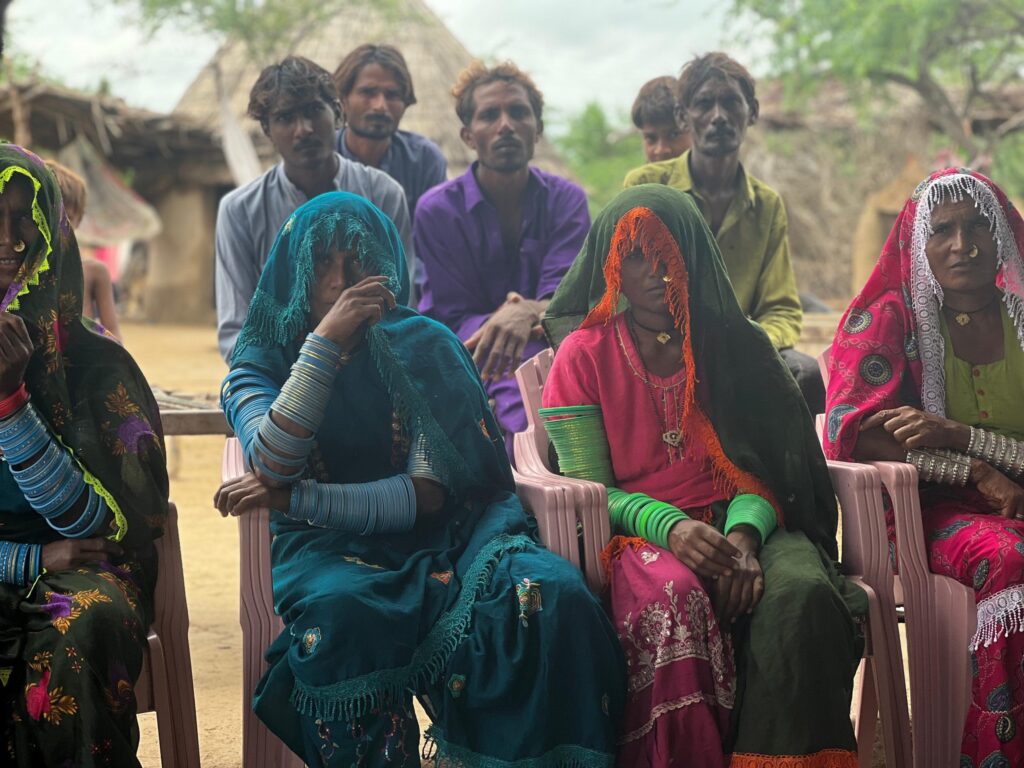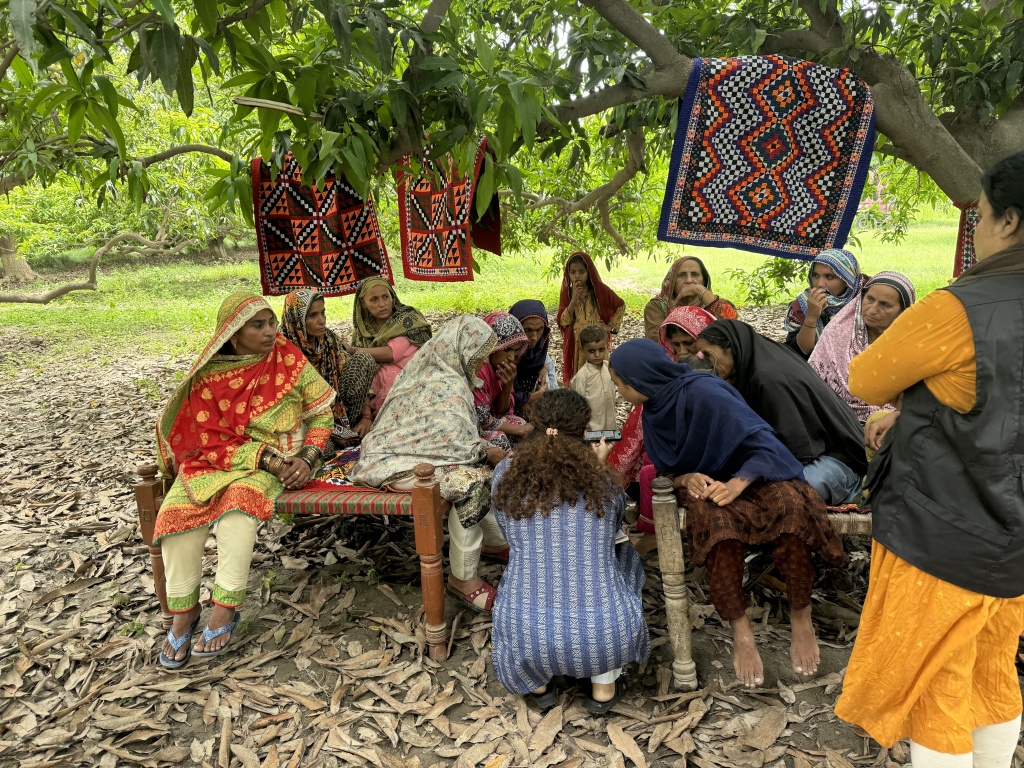
Protoyping a Climate Resilient Seed Testing and Distribution Program
Situation
Airbel IRC had previously conducted foundational research in Northeast Syria and Pakistan, which surfaced several critical opportunities and challenges around community seed systems and farmer livelihoods brought about by climate change. However, to move from research into action, IRC required support in rapid prototyping of inclusive agricultural solutions and communication of the seed system that are contextualised in human-centered design and behaviorally informed.
Assignment
Bridge Research and Action – By reviewing learnings from past research and FGDs, the consultant was expected to synthesize learnings and translate them into usable insights for prototypes of scalable intervention designs. These were to be practical, tested ideas for building trust in new seed varieties through experiments with farmers and institutions, whilst providing technical support to women farmers who face access issues and participation advocacy.
- Seed testing experiment layouts and cycles that enable seed sharing and distribution.
- Developing labelling and packaging that makes high-performing seed varieties easily recognizable.
- Developing communication material to create awareness of the program whilst encouraging women to shift from subsistence to cash crop cultivation in empowering ways.
- Address persistent seed storage issues and lastly,
- Develop a playbook for scale.
Approach
It kicked off with an internal IRC workshop to align objectives and define priorities. Developing the prototypes and refinement research question guide followed. In Pakistan, we commenced with additional stakeholder workshops in the varying regions, to access feasibility and further develop prototypes. This concluded with field prototyping focus groups and individual interviews.
Activities:
- Alignment & insight gathering methods used: Internal alignment workshop, desk review, synthesis of prior research (NE Syria, Pakistan) Purpose: To align project objectives across Airbel and in country IRC team, identify existing knowledge gaps, and define key design challenges. Output: Refined problem framing and behavioral insight themes to guide prototyping, prototypes, high level ecosystem maps.
- Prototype Creation methods used : Script writing and recorded voice notes test messaging, sketched labels and scenario experiments that would demonstrate how the farmer-centric seed system would operate from awareness to wide spread seed tester farmers.
- Co-creation & concept development methods used: Ideation workshop sessions and process onboarding for Stakeholders in Pakistan agriculture ecosystem Purpose: To validate initial concepts, revisit prototypes and improve on them with local key stakeholders, and assess feasibility within the agricultural ecosystem. Output: Mid-level stage prototype ideas for communication, seed testing and identification, authentication, and distribution systems.
- Prototyping & field testing methods used: Prototype testing, low-fidelity co-creation and prototyping, focus groups, individual interviews, field immersion, feedback loops Purpose: To test and refine prototypes directly with farmers, especially women, across diverse land ownership and usage contexts. Tools Used: Refined rapid prototype mock-ups (e.g. seed packaging, labelling, and distribution flows), concept testing with stimuli, e.g sketches, photos and scripts, behavioral experiments (e.g. to test trust in seed testers and verification mechanisms)
- Synthesis & System Design Methods Used: Insight clustering, systems mapping, persona development, journey mapping. Purpose: To translate research and prototyping insights into a scalable, inclusive design for the Farmer Seed Network

Results
- Refined design and behavioural insights to deeply understand the opportunity for the seed system.
- Farmer Seed Network which includes: -Partnerships and roles in the Pakistan agriculture ecosystem with opportunities for engagement -Recruitment and onboarding communication -Additional tools for verification and authentication e.g packaging and traceable seed labelling -Testing and distribution mechanisms i.e seed type, where and how it is tested, who distributes to who and how. -Journey maps of the different defined farmer categories from the research -Playbook for scale that staff could use to set up Farmer Seed Networks across varied contexts, taking into account land user and ownership types, land size, and support needs.
This project was commissioned by Proportion Global for client, International Rescue Committee and performed by Julita, a member of the Proportion Global community. If you’ve enjoyed reading this case and want to dive deeper, we’d love to hear from you and we will connect you with relevant designers like Julita, who worked on this project Contact Us


Responses